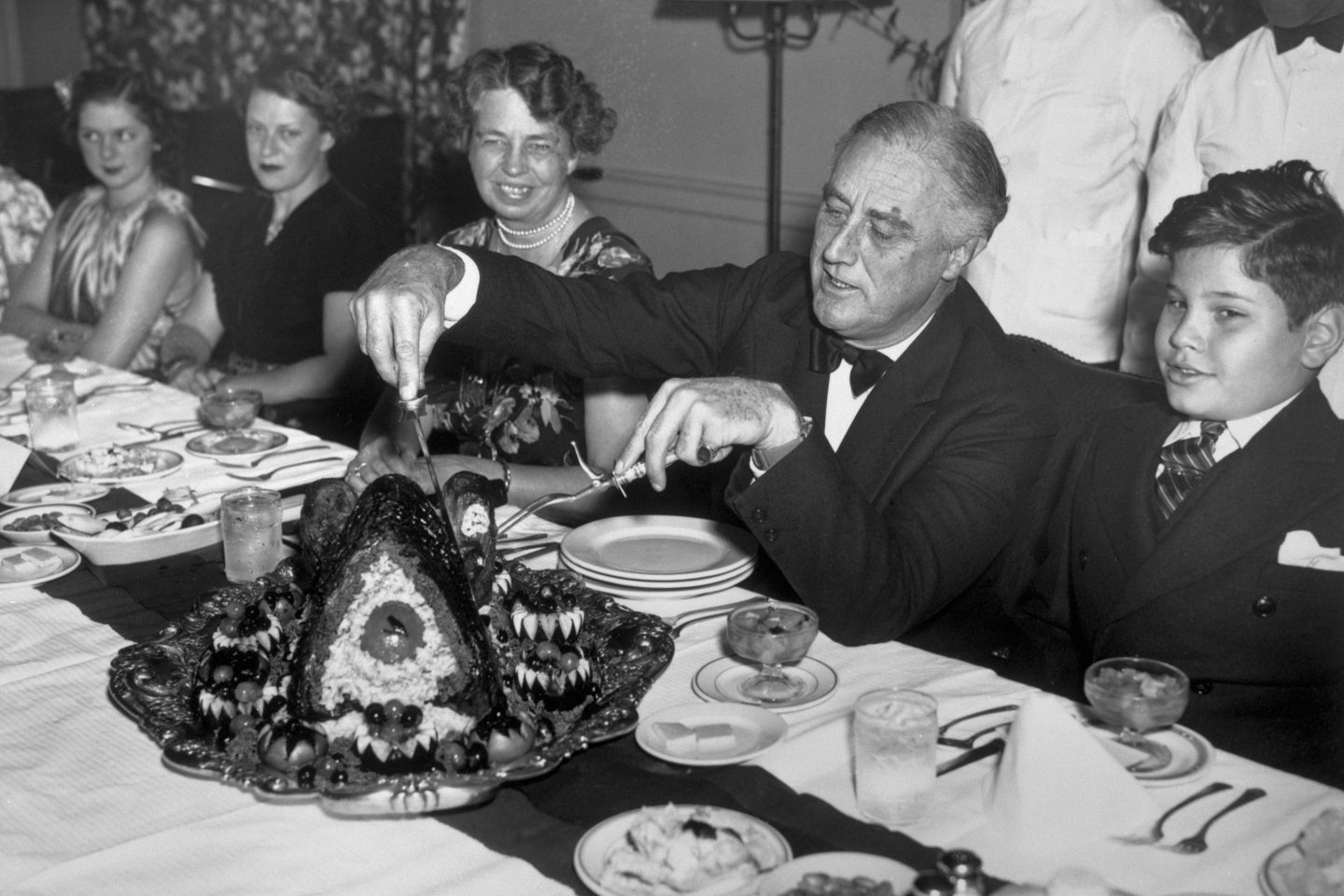The Christmas shopping season traditionally begins the day after Thanksgiving, with turkey leftovers in the refrigerator.
That period—27 days this year, between Black Friday on Nov. 28 and Christmas Eve on Dec. 24—is a make-or-break time for American retailers, with holiday sales accounting for almost a fifth of annual sales overall, and a third for department stores. This year, forecasters expect that jitters about the economy will make some shoppers extra frugal, so for retailers, every day is crucial.
Those retailers—and shoppers with long gift lists to get through—have one man to thank for ensuring that they can count on about this many shopping days every year. Fred Lazarus Jr. is credited with convincing President Franklin D. Roosevelt in 1939 to break from tradition and declare the fourth Thursday of November Thanksgiving Day. Prior to Lazarus’s intervention, Thanksgiving was traditionally held on the last Thursday of November, which in 1939 (as in 2023) would have been the fifth Thursday, Nov. 30, leaving just 24 days to shop.
Lazarus, as described in a 1948 Fortune profile, was a forceful figure—the scion of an Ohio department store dynasty who had a “passion for dominance” and an appetite for risk that he honed as a young man during the Panic of 1907. That’s when he and his brother convinced their father to undertake a major expansion of the men’s clothing store their grandfather had founded in Columbus, Ohio. Even as the economy teetered, they resolved to build F. & R. Lazarus “an imposing new six-story building, which contained the first department-store passenger escalator in the U.S.”
Their bet paid off, and by 1948, the Lazari (as the family members were known) had built their company, then called Federated Department Stores, Inc. into a $300 million empire, including Filene’s in Boston, Boomingdale’s in Manhattan, and several other major department stores around the country. Fortune described the physically diminutive Fred Lazarus Jr. running these retail behemoths “much as a small boy would lead a herd of elephants.” Federated evolved into what is now Macy’s Inc.
As the grandson of a Jewish immigrant fleeing persecution in Germany in the late 1800s, Lazarus might seem an unlikely advocate for Christmas shopping. But his lobbying of Roosevelt had a particular purpose in 1939: to help retailers still struggling with the Great Depression by lengthening the most lucrative shopping period of the year.
The move wasn’t without critics—which included pastors, football coaches, turkey producers, and Republicans, who mockingly called the new date “Franksgiving” after the president’s first name. But it stuck: In 1941, Roosevelt signed a bill into law officially declaring the fourth Thursday of November the national holiday of Thanksgiving Day.












